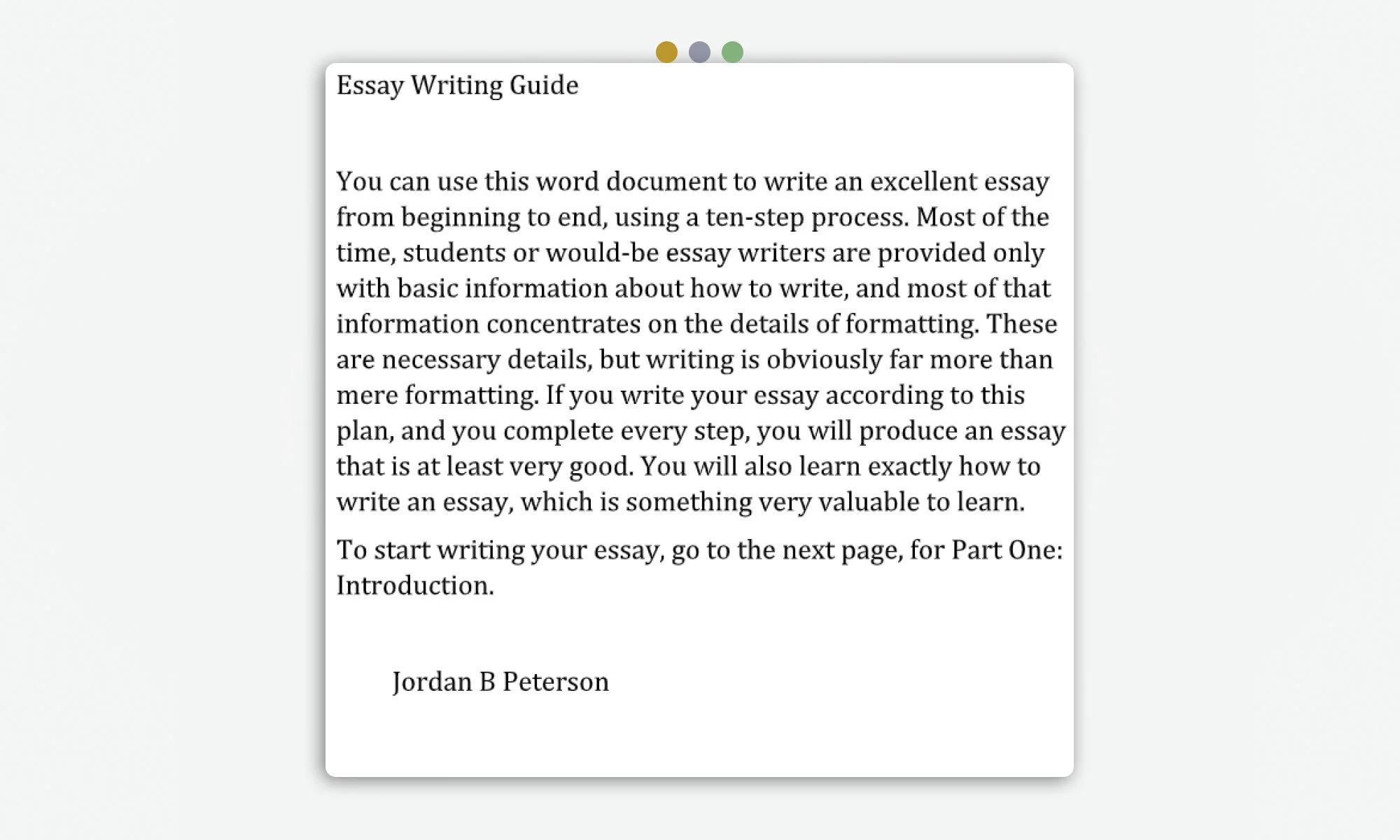Weekly Highlights #31
The content we consume can consume us, if we are not mindful enough. In this period of information overload and analysis paralysis, The ‘Weekly Highlights’ collects the 3, most valuable pieces of content I have come across during the week, and packages them in a single page, with some notes and key highlights, so to foster mindful and intentional consumption of content, which can truly add value to our life.
Intentional content consumption, in an era in which the amount of content we expose ourselves to can consume us, if we are not mindful enough.
This essay writing guide by Jordan Peterson is comprehensive, well though-after, written in clear and concise manner. It not only presents some major concepts and rules for writing effectively, but it also does so in an actionable and step-by-step fashion.
“Rules are there for a reason. You are only allowed to break them if you are a master. If you’re not a master, don’t confuse your ignorance with creativity or style. Writing that follows the rules is easier for readers, because they know roughly what to expect. For example, aim to make your paragraphs about 10 sentences or 100 words long. A paragraph should present a single idea, using multiple sentences.”
. . .
“You should think of the essay writing process as twofold. The first major step is the first draft, which can be relatively quick and dirty. For the first draft you can use your notes, extensively, and rough out the essay. If you get stuck writing anywhere, just move to the next outline sentence. You can always go back. The second major step is editing. Production (the first major step) and editing (the second) are different functions, and should be treated that way. This is because each interferes with the other. The purpose of production is to produce. The function of editing is to reduce and arrange. If you try to do both at the same time then the editing stymies the production.”
Performance psychologist Jim Loehr explores the characteristics, practices, psychological resources of great sport performers on this episode of the Tim Ferris Show.
Dr. Loehr underlines what he believes and has noticed (in his long and fulfilling career working with great athletes) to be the real “power broker governing our lives”: the private voice only we can hear and our relationship with that inner voice. This reminds me of a Wait but Why article on the authentic voice.
Some journaling prompts are also shared by dr. Loehr, who considers keeping a journal a pillar of mental toughness and awareness of the internal voice. One of them includes this question: “In six to eight words, how would you like your life to be summarized on your tombstone?”
Quote of the week
““We are what we pay attention to, and almost nothing influences our productivity and creativity as much as the information we’ve consumed in the past.””
This Week's Post
If you enjoyed this post, consider signing up to the weekly newsletter.


